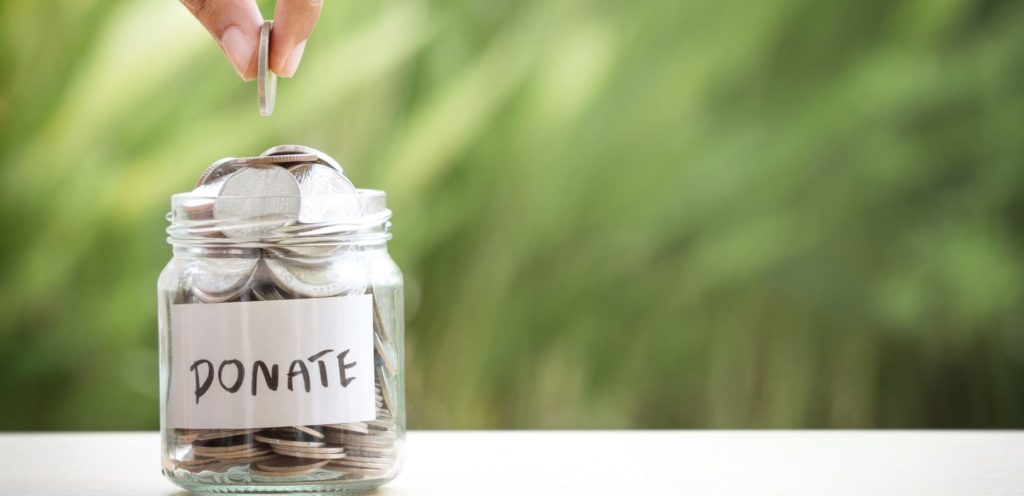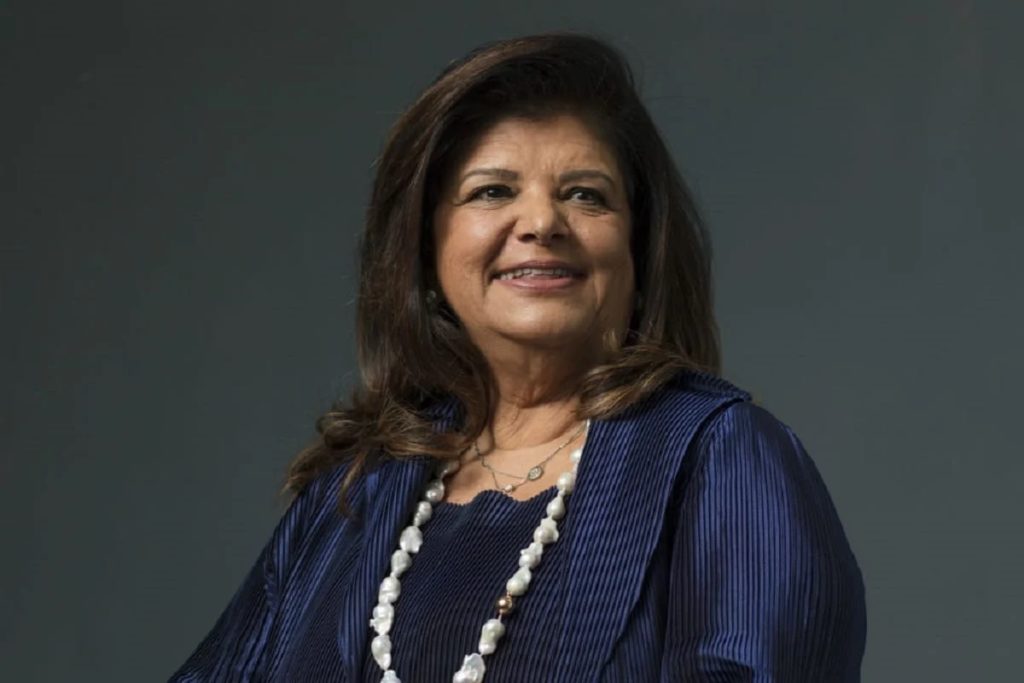RIO DE JANEIRO, BRAZIL – Brazil’s economic elite has emerged from the pandemic burrow. The majority respected the physical isolation, but many of the country’s wealthiest families came forward to publicly announce they had donated millions of reais as individuals.
It was an unprecedented number of billionaires who admitted to having taken from their own pockets large sums of money to fight the coronavirus and its impact, despite the companies they control having done likewise.
A donation from the very wealthy is nothing new. “It’s something that’s always existed and, therefore, cannot be classified as a trend,” says Fábio Mariano Borges, a professor at ESPM (Superior School of Advertising and Marketing).

“We’ve always had great patrons, for instance, who built some of the country’s most important museums and collections.” The difference is that in the pandemic, some of the country’s top entrepreneurs have placed their faces and signatures on charity.
“There has been a maturation of economic leaders,” says Rodrigo Pipponzi, vice president of the ACP Institute, his family’s social investment organization, which owns RaiaDrogasil. “To concede to the donation and to do it naturally is a major step to understand and develop citizenship and recurrence, which cannot be only palliative initiatives in emergencies.”
What begins to change is the act of contrition and the awareness that the donation culture – and that of citizenship through involvement in projects in which one believes – will only occur based on tangible examples.
“Every elite is to blame for the situation we are experiencing today, be it economic, political, intellectual,” says Rubens Menin, founder of MRV Construtora and Inter Bank. “The elite is a reflection of the more powerful society, and it is their mission, first and foremost.”
He’s not the only one who thinks so. “The elite has to take on the role of contributing and raising awareness,” says Elie Horn, owner of Cyrela. “It’s our moral and social obligation for equality and justice.”
According to some of the interviewees, the new generation has been playing a key role in making elders show their faces. For the youngest, the most significant values extend beyond accumulation. The fact that the coronavirus has reached everyone has also helped.
“As the coronavirus affected and weakened even those who have a lot of money, there was more solidarity,” says Beatriz Bracher, of the Galo da Manhã Institute, which focused donations from the Botelho Bracher families in the pandemic.
They say that more important than donating money is finding the causes that one wants to support and follow the transformation fostered by the well-spent money. “The pleasure is not in donating, but watching things happen,” Beatriz says.
Everyone wants the movement to remain after the end of the pandemic. “Civil society organizations come out stronger, people have learned that it’s not that hard to donate and transparency has increased,” Pipponzi says.
For Paula Fabiani, president of the Institute for the Development of Social Investment (IDIS), it was clear that it is up to each Brazilian to build their own path as a citizen. “Civil society reacted quickly by providing solutions in an exercise of citizenship and social involvement,” she says. “Part of that will stay.”
‘No one can save the world alone’
“A lone rooster won’t wake the morning: it will always need other roosters,” wrote João Cabral de Melo Neto, in the poem that inspired author Beatriz Bracher to christen the Galo da Manhã (Morning Rooster) Institute.
“I always found this poem beautiful and it says what we think: no one can save the world alone.” It was a natural choice for the organization she founded late last year. The goal was to organize her donations, prioritizing the pillars of the defense of democracy, human rights, and women.
But then the pandemic came and the priority for new donations changed. Beatriz, her four siblings, and other relatives started talking. “When we realized that we would have to isolate ourselves, we identified with those who couldn’t do the same thing,” she says. “We decided that we would try to enable isolation.”
Sons of Fernão Bracher, ex-president of the Central Bank and one of the founders of Itaú BBA, and Cândido Bracher’s siblings, president of Itaú Unibanco, the Botelho Bracher family is used to donating. Only this time, they joined. They also raised the amount of their contributions.
According to Beatriz, it was a way to have a say in deciding and monitoring the use of resources. “We received a request from CUFA (Unified Favela Center) to donate 4,000 food baskets to 4,000 mothers,” she says. “In this case, we decided it would be more effective to give them money.”
According to Beatriz, as well as monitoring the use of the money, those that donate begin to better understand the precarious nature of people’s living conditions. They begin to reflect more on the politicians they support and on how to do it differently. The donation of time and money begins to be made so that a structural change can happen rather than just occasional.
“Here, a donation is not a spreadsheet number.”
In one of the donations in the pandemic, the delivery man for Magazine Luiza realized that the benefiting family in Guarulhos needed much more than the mattress received for the special child. In the house, everything was lacking. Even food. Soon after, the load came back full, with furniture and a basic basket.
“Here, a donation is not just a number on an Excel spreadsheet,” says Carlos Renato Donzelli, the holding’s director and member of Magalu’s board of directors. “As we have a very widespread operation, present throughout the country and with the employees involved, no one is indifferent and there is great agility.”
The number of requests has also multiplied. This was one of the reasons why the Trajano and Garcia families donated an additional R$20 million (US$4 million) last week. At the start of the crisis, they had already taken R$10 million out of their own pockets. Magalu donated a further R$ 20 million.
“Halfway through, we realized that the demand wouldn’t end and we needed to expedite the donation process because needs became great and urgent.” Donzelli mentions the donation of 20,000 tablets to students in public schools with no access to e-learning.
For over 25 years, close to the families that control Magalu, Donzelli said the need for personal donations was perceived shortly before the pandemic, due to the awareness among retail customers. Important in the cities where they are active, the stores and distribution centers have become hubs for community requests.
According to him, Luiza Trajano, president of Magalu’s board, heads the team in charge of donations.

“My children told me: Daddy, donate in life.”
Five years ago, the director of an NGO called Elie Horn, founder of the construction company and developer Cyrela, a coward. “You donate, but you don’t want anyone to know you do it,” he told me.
“From that day on, I started speaking of my donations and I never stopped,” says Horn, 76 years old. For him, publicizing his image as a donor was a sacrifice. “It’s harder to come out and get pounded, but you have to nudge people’s feelings in order to do good.”
Horn became the first Latin American billionaire, along with his wife Susy, to sign the Giving Pledge. Founded by Bill Gates, the movement tries to attract owners of great fortunes to donate 60 percent of their assets to charity during their lives. Horn is still the only Brazilian in the 210-member billionaire group, which includes fund manager Warren Buffett and Tesla owner Elon Musk.
“When I told my kids, they said, “Daddy, donate in life.” Horn is annoyed when talking about growing donations during the pandemic. “In the crisis, you can even do a little extra, but it can’t only be at this time because people eat, drink, and live every day, all year long.”
‘Community culture is needed’
On the same day, he granted the interview, Rubens Menin, partner of MRV Engineering, Inter Bank, and CNN Brazil, met online with 13 of Brazil’s largest donors. At the meeting, they discussed the pros and cons of publicly accepting the donation of resources. “It was almost a philosophical meeting,” Menin says.
The conclusion: it is important for donors to make their actions public. “It’s necessary to internalize culture in the community, as the Americans do,” she says. “We have an obligation not only to donate but also to show and encourage more people to follow this path.”
According to him, at home, everyone is discussing the projects to be supported in a structured way and the impact achieved. It’s almost like a business. There are strategies, staff, and five-year and growing donations planning.
Over the past five years, Menin has donated R$10 million per year. Before the pandemic, the plan was to raise the amount to R$20 million over the next five years. However, in 2020, the sum has already reached R$30 million. “Philanthropy is like a drug, but the effects are wonderful.”
“I can’t keep my privilege.”
Since the outbreak of the pandemic, Rodrigo Pipponzi says he feels better heard. At the head of the ACP Institute, his family’s social investment organization, which owns Raia Drogasil, he has been a professional in the field for over a decade. He hated the term ‘heir’ until he realized his role as a social entrepreneur. “I can’t keep my privilege to myself,” says Pipponzi.
In the pandemic, a large number of individuals, not only companies, began to want to learn from his experience.
Antônio Carlos Pipponzi, chairman of RaiaDrogasil and the company’s controlling shareholder, is known in the world of donations. The trajectory of another Pipponzi, his son, in the area began with Mol.
Initially focused on customized publications for companies, the publisher was given another purpose when he realized the opportunity to produce magazines sold in retail which revert their profits to institutions and causes.
In the pandemic, the IACP created the ‘Família apoia Família’ (Family Supports Family) movement in which donors contribute from R$50 through a platform. The money is converted into basic food baskets for 70 communities. It has raised R$11.6 million since April.
Source: O Estado de S. Paulo

